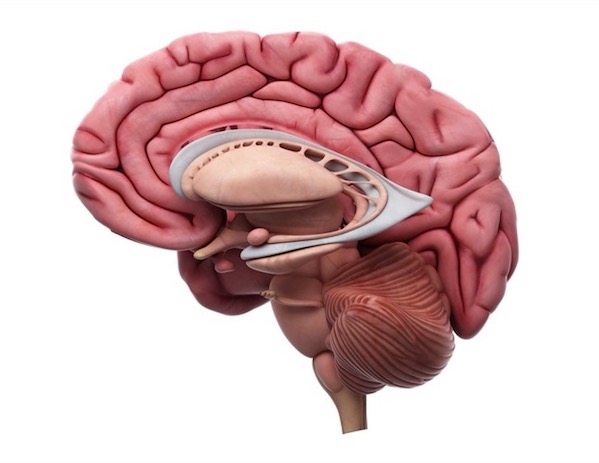New ultra-flexible neural implant records single-neuron activity in deep-brain regions
July 22, 2023
Source: drugdu
 477
477

A new ultra-small and ultra-flexible electronic neural implant, delivered via blood vessels, can record single-neuron activity deep within the brains of rats, according to new study. "This technology could enable long-term, minimally invasive bioelectronic interfaces with deep-brain regions, writes Brian Timko in a related Perspective. Brain-machine interfaces (BMIs) enable direct electrical communication between the brain and external electronic systems. They allow brain activity to directly control devices such as prostheses or modulate nerve or muscle function, which can help individuals with paralysis or neurological disorders regain function. However, most conventional BMIs are limited to measuring neural activity at the brain's surface. Recording single-neuron activity from deep brain regions often requires invasive intracranial surgery to implant probes, which can result in infection, inflammation, and damage to brain tissues.
An alternative approach to implanting bioprobes into deep-brain regions is via the brain's vascular network. Here, Anqi Zhang and colleagues present ultra-flexible micro-endovascular (MEV) probes that can be precisely delivered to deep-brain regions via blood vessels. Zhang et al. designed an ultra-small and flexible mesh-like electronic recording device that can be loaded onto a flexible microcatheter and implanted into sub-100-micron scale blood vessels of the inner brain. Once delivered, the device expands like a stent to record neuronal signals across the vascular wall without damaging the brain or its vasculature. To evaluate the MEV probe's potential in vivo, Zhang et al. implanted the injectable probe into the vasculature of rat brains and demonstrated the ability to measure local field potentials and single-neuron activity in the cortex and olfactory bulb.
What's more, the authors show that the implanted devices exhibited long-term stability, caused no substantial change to cerebral blood flow or rat behavior, and elicited a minimal immune response. Timko notes that future iterations of such devices could provide tailored therapies to the patient by recording and decoding their neural activity and then providing the appropriate modulatory stimuli.
Reference:
https://www.news-medical.net/news/20230720/New-ultra-flexible-neural-implant-records-single-neuron-activity-in-deep-brain-regions.aspx
Read more on
- The first subject has been dosed in the Phase I clinical trial of Yuandong Bio’s EP-0210 monoclonal antibody injection. February 10, 2026
- Clinical trial of recombinant herpes zoster ZFA01 adjuvant vaccine (CHO cells) approved February 10, 2026
- Heyu Pharmaceuticals’ FGFR4 inhibitor ipagoglottinib has received Fast Track designation from the FDA for the treatment of advanced HCC patients with FGF19 overexpression who have been treated with ICIs and mTKIs. February 10, 2026
- Sanofi’s “Rilzabrutinib” has been recognized as a Breakthrough Therapy in the United States and an Orphan Drug in Japan, and has applied for marketing approval in China. February 10, 2026
- Domestically developed blockbuster ADC approved for new indication February 10, 2026
your submission has already been received.
OK
Subscribe
Please enter a valid Email address!
Submit
The most relevant industry news & insight will be sent to you every two weeks.



